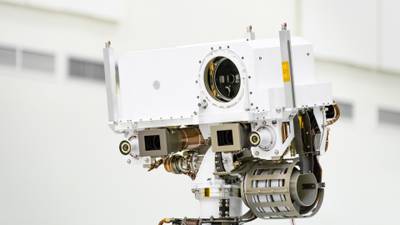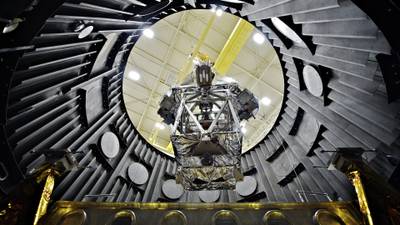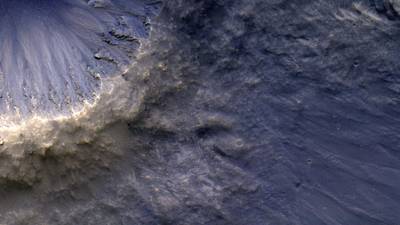Build to a Masters online, one short course at a time
Our online short courses provide an alternative entry route to this Masters degree when:
- you want to get your studies started without committing to a full Masters
- you’ve missed the deadline to apply for the full degree, or
- you do not meet the formal degree entry requirements.
A way to study for this online Masters without a degree
Our entry-route short courses are self-evaluating.
This means you do not need to provide formal qualifications to study them. If you believe you’re academically capable, you’re welcome to join a course.
To help you decide if a short course is right for you, check the entry guidance on each course page. It explains the level of teaching involved.
How it works
- Complete at least 30 credits’ worth of the recommended short courses for this online Masters.
- Then apply to transfer to the online Masters when you’re ready.
By earning 30 credits or more from the recommended courses successfully, you’ll have proved you’re capable of learning at this level.
You’ll then be eligible to apply to transfer to the online Masters, even if you do not hold the formal degree entry qualifications.

Buy
Purchase and complete at least 30 credits’ worth of the recommended short courses for this online Masters degree.

Apply
We’ll contact you during your studies to help you apply to transfer to the online Masters.

Transfer
Provided the degree coordinator is happy with your performance we can then transfer you.
Purchasing your courses
To join a course, apply via the course page and follow the application and checkout process.
Courses are available to purchase until one week after their start date, but we encourage you to purchase your courses as early as possible to ensure a smooth start to your studies.
Study at your own pace
We estimate that each of these 15-credit courses is around 10 – 15 study hours per week.
If you’re planning to study part-time, especially if you’re studying around full-time work, we recommend taking a maximum of 30 credits per term.
You’re welcome to go at a slower pace and begin with one 15-credit course. But you cannot transfer to the degree until you have at least 30 credits from courses that are part of this online Masters.
Online Masters route not for you?
You do not have to transfer to the Masters degree. Our online short courses give you the flexibility to:
- study any short course standalone, earning credits with each one
- build your credits up to a Postgraduate Certificate or Postgraduate Diploma instead
- continue course by course, at your own pace, with the option to transfer to the online Masters when you’re ready.
Frequently asked questions
Here are answers to the most common questions we receive about our short course routes.
If your question is not answered here, we’re here to help. Get in touch.
We recommend these courses for this entry route for two reasons.
- It’s the recommended route set out by the programme coordinator.
- These are the courses that students taking the full online Masters degree will typically be starting with too. You’ll be studying alongside a cohort of online degree students. If you later transfer into the online degree, you’ll continue studying alongside these same students, giving you a smoother transition into the degree programme.
Yes, absolutely.
You can choose to take one or two of these 15-credit courses each term.
- 15 credits is around 10 – 15 study hours per week.
- 30 credits is around 20 – 30 study hours per week.
Because our degrees and awards are flexible, you can also take study breaks between courses.
You’ll be eligible to apply to transfer to the online Masters when you:
- pass 30 credits’ worth of recommended short courses from this Masters degree successfully, and
- receive your official passing grades for these courses
If you fulfil these requirements, you can apply to transfer. The programme coordinator makes the final decision on degree transfers.
We’ll contact you during your studies to ask if you’re interested in transferring.
You can then apply to transfer, and we’ll process your transfer once you meet the eligibility criteria.
We’ll support you through the process, providing all the information you need along the way.
If you’re taking the short course route, you do not need to apply for the Masters degree separately via our Applicant Portal. Instead, we’ll fast-track you into the online Masters, providing you meet the eligibility criteria.
If you fail your first attempt at a short course, you’ll be offered one chance to resit the course assessment.
If you fail this resit, you cannot take the course again.
We would then be able to advise you as to your options – you may still be able to qualify with a postgraduate qualification in a different specialism.
No. Once you’ve completed your entry-route short courses, you will not need to study them again when you transfer to the Masters degree.
The credits you have completed will count towards the Masters degree.
Once you’ve transferred to the Masters, you will not need to pay for the courses that you have already studied. Your Masters fee will be adjusted to deduct the cost of the courses you have already paid for.
A pay-as-you-go degree
We never charge the full fee for a Masters degree upfront. Instead, we charge for our degrees one term at a time, so you can spread the cost.
How pay-as-you-go works
Each term, you decide how many courses you’d like to take. Then you pay for these courses just before term starts. This gives you control over your degree fees and your workload, term by term.
Each of these 15-credit courses requires around 10 – 15 study hours per week.
This is an indicative guide to the time required for a typical student at this level to achieve the learning outcomes. This includes time for independent study, as well as teaching and assessments.
You’ll find more detailed and course-specific study hours on each of our online course pages.
Studying around work?
If you’re planning to study part-time, especially if you’re studying around full-time work, we recommend taking a maximum of 30 credits per term.
I’ve already applied for this Masters degree, but I want to study via the short course route instead
If you’ve already submitted an application for this degree, please:
- email our Postgraduate Admissions team with your applicant number and ask them to cancel your degree application
- then purchase and join your chosen short course(s).








